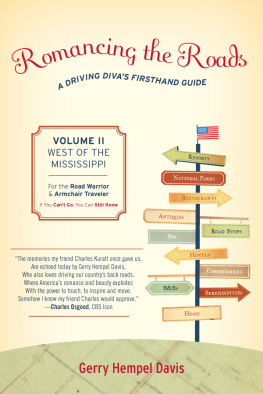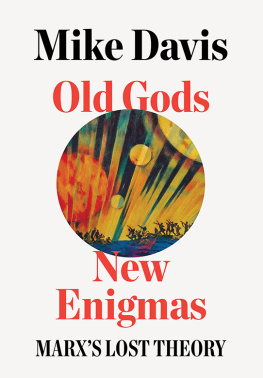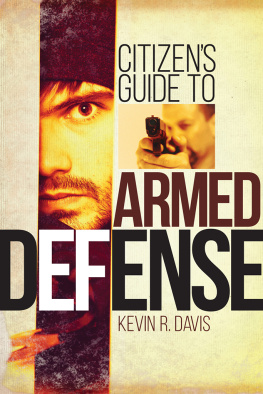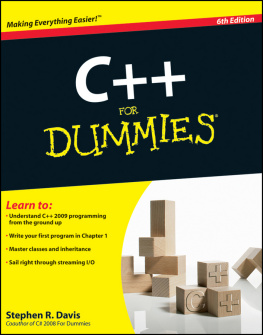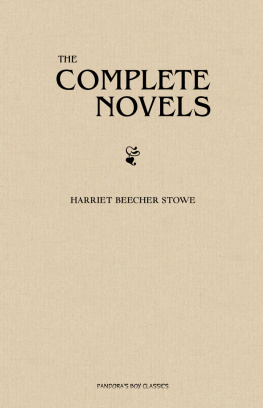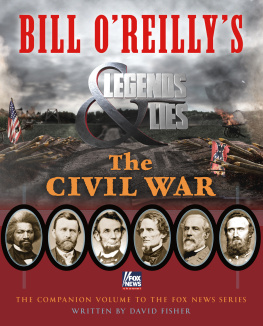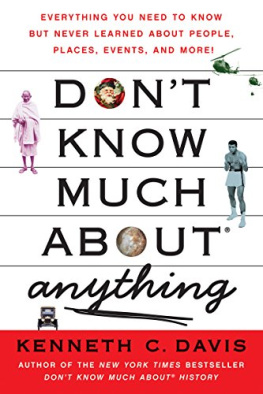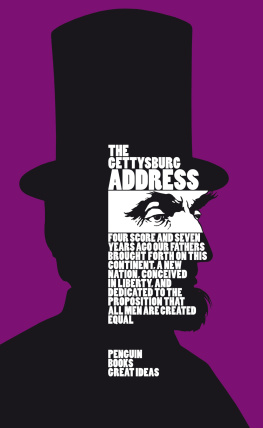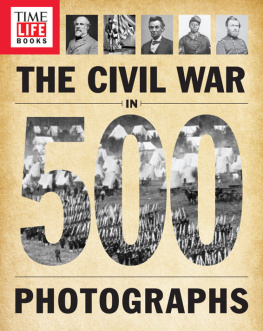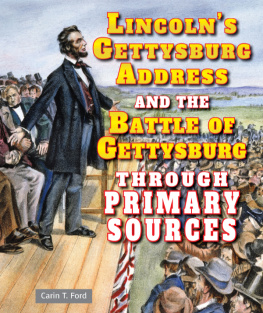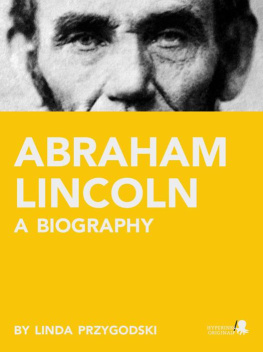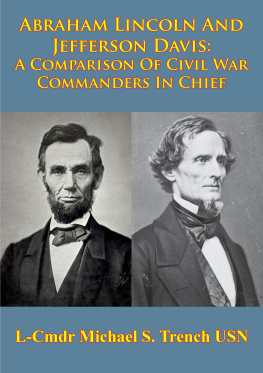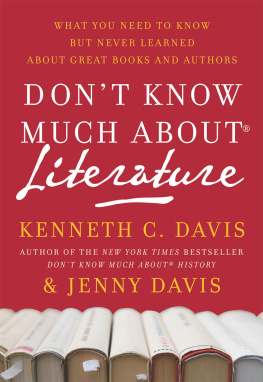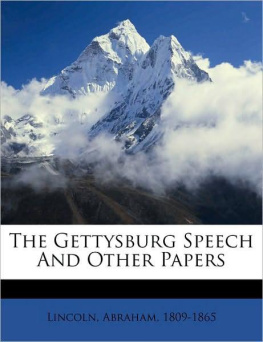Americas Hidden History
A Nation Rising
Two-Bit Culture: The Paperbacking of America
The Dont Know Much About Series
Dont Know Much About History, Anniversary Edition
Dont Know Much About Geography
Dont Know Much About the Civil War
Dont Know Much About Literature
Dont Know Much About Anything
Dont Know Much About Anything Else
Dont Know Much About Mythology
Dont Know Much About the Bible
Dont Know Much About the Universe
The Dont Know Much About Series for Children
Dont Know Much About the Presidents (revised edition)
Dont Know Much About the Pilgrims
Dont Know Much About the 50 States
Dont Know Much About American History
Dont Know Much About the Solar System
Dont Know Much About Space
The Civil War
EVERYTHING YOU NEED TO KNOW ABOUT AMERICA'S GREATEST CONFLICT BUT NEVER LEARNED
Kenneth C. Davis
CONTENTS
Appendices
It is well that war is so terrible; else we should grow too fond of it .
G ENERAL R OBERT E. L EE
War is at best barbarism. Its glory is all moonshine. It is only those who have neither fired a shot, nor heard the shrieks and groans of the wounded who cry aloud for blood, more vengeance, more desolation .
G ENERAL W ILLIAM T. S HERMAN
If I were to speak of war, it would not be to show you the glories of conquering armies but the mischief and misery they strew in their tracks; and how, while they marched on with tread of iron and plumes proudly tossing in the breeze, some one must follow closely in their steps, crouching to the earth, toiling in the rain and darkness, shelterless themselves, with no thought of pride or glory, fame or praise, or reward; hearts breaking with pity, faces bathed in tears and hands in blood. This is the side which history never shows .
C LARA B ARTON
Oh, I'm so interested in the Civil War. I have been ever since I read Gone With the Wind !
I have lost count of the number of people who told me that while I was writing this book. Unfortunately, it seems that a great many Americans owe their understanding of the central event in our history to a sixty-year-old piece of fiction.
Frankly, my dear, this notion terrifies me. It suggests that legions of Miss Mitchell's readers know as much about the Civil War as Scarlett O'Hara's slave Prissy knew about birthing babies. It means that millions of people's notions of the Civil War era and slavery were shaped by a book in which all the white folks speak the King's English and slaves sound like this:
Runned away? No'm, us ain' runned away. Dey done sont an' tuck us, kase us wuz de fo' bigges' an' stronges' han's at Tara. Dey specially sont fer me, kase Ah could sing so good.
Perhaps their views of plantation life derive from this Pulitzer Prize-winning description of an idyllic Georgia barbecue: Over behind the barns there was always another barbecue pit, where the house servants and the coachmen and maids of the guests had their own feast of hoecakes and yams and chitterlings, that dish of hog entrails so dear to negro hearts, and, in season, watermelons enough to satiate.
But maybe it wasn't Margaret Mitchell's prose and views on the war and slaves that did the trick. Perhaps they were among those Americans who learned about the Civil War this way: Slavery died out in the North because it was expensive and inefficient. The African was too recently removed from his tropical home to endure the harsh winters , and even on a farm his labor did not pay for itself. There was no time to train his primitive fingers to perform all the varied tasks required of a Yankee handyman . (Emphasis added.)
Does that sound like 1859 plantation propaganda? It actually comes from a 1959 McGraw-Hill textbook called The War Between the States .
For a long time, I thought that Margaret Mitchell's famous novel was to blame for the obsession that so many Americans have with the Civil War period. I assumed that Gone With the Wind still this country's most beloved book and moviemade us a nation consumed by a devastating war.
And consumed we are.
* Early in 1995, a man was killed in a parking lot after an argument that started over a Confederate flag hanging in the back of the dead man's pickup. This incident occurred not long after Virginia's hotly contested 1994 Senate race, in which Republican candidate Oliver North supported those who wish to retain the Confederate flag as an emblem in several southern state flags. It was another skirmish in an emotional war between those who see the stars and bars as an offensive racist symbol and those who honor it as a symbol of their heritage.
* Discussing affirmative action policies in 1995, Republican Senator Robert Dole questioned whether future generations should have to pay for slavery. Said Dole, Some would say yes. I think it's a tough question.
* In June 1995 the Southern Baptists, who had split from the Baptist Church in 1845 over the issue of slaveowners becoming missionaries, apologized to African Americans for the sin of slavery.
* In 1994 the heavily armed Disney divisions were outflanked in their attempt to build an American history theme park and real estate development near the site of a major Civil War battlefield. In the Third Battle of Bull Run, the Fightin' Mouseketeers, holding their banners High, High, High, were routed by a regiment of guerrilla historians and roving bands of historical preservationists.
* In Richmond, a bitter dispute ran along racial lines in 1995 over the placement of a statue honoring Arthur Ashe, the late tennis star and a native of the Virginia capital. Some traditionalistswho happened to be whitedidn't think a statue honoring a tennis playerwho happened to be blackbelonged with monuments to the heroes of the Confederacy, Robert E. Lee and Stonewall Jackson. Richmond's blacks objected because the young tennis star wasn't welcome in that section of the city in the segregated days of his youth, when he was unable to play on public courts. After an ugly controversy, the statue was unveiled on Monument Drive.
* Two historians recently requested court permission to remove John Wilkes Booth's body from the Booth family plot in a Baltimore cemetery. They suggested that the body is not Booth's and that Lincoln's assassin might have actually escaped. (Quick. Call Oliver Stone!)
* A mock slave auction, reenacted in 1994 at Williamsburg, Virginia, set off a protest by African Americans, who thought the drama was degrading and too painful to repeat.
* In the Republican Congress elected in 1994, there was a concerted move to return certain powers to the states. About the same time, the Supreme Court issued several decisions questioning the extent of federal powers. The states' rights tune is on the Hit Parade once more.
And you thought the Civil War was over.
Back in 1970, I spent the summer in Wilmington, North Carolina, tutoring children under the auspices of a historic black church that had been a station on the Underground Railroad. A young New Yorker who had never been in the South, I got my first surprise from a highway billboard: THE KU KLUX KLAN WELCOMES YOU .
My next dose of culture shock came when we took a group of black children on their first trip to the ocean. Several young men who preferred the days when the beaches were closed to blacks screamed ugly racial epithets at the children. My third eye-opener came during a trip to a prominent white church to hear its magnificent pipe organ. As the black children settled into the pews, an older member of the church stormed down the aisle. His face purple with anger, this good Christian man furiously demanded, What are thesethe N word was on the tip of his tongue, but he caught himself and spit out people doing here?
Next page


